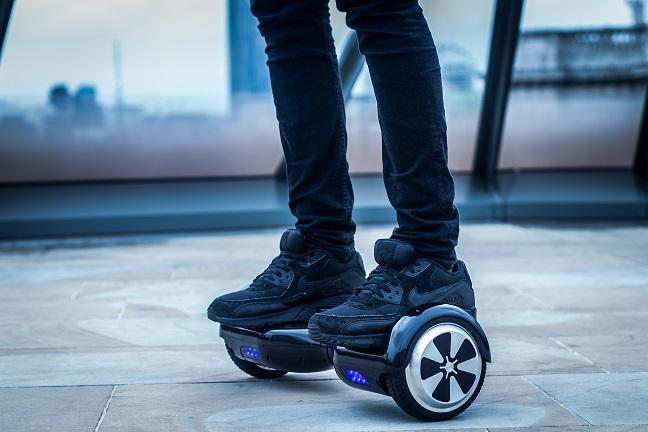By Caroline Boschetto, news correspondent
Hoverboards – this novel mode of transportation has been blowing up in more ways than one.
The popular self-balancing scooters have been catching fire and posing threats to health and property, according to a university-wide email issued Jan. 22. In the message, the Northeastern University Police Department (NUPD) banned hoverboard use and charging in residence halls and university buildings.
“For the most part, they seem pretty benign,” sophomore mechanical engineering major and hoverboard owner Chris Murphy said. “Cars catch fire too, so it’s not like ‘now I can’t drive.’ Also, it’s not like a car where you’re trapped in it… If it was on fire you just step off.”
Murphy also said that he doubts the ban will be enforceable. He said he uses uses his board for recreation rather than for transportation, as do most of his friends.
“You also can’t drink in dorms but everyone still does it. There’s no way for them to find out if [a student] plugged a hoverboard into the wall,” he said.
NUPD Cadet Andrew MacDonald said that the order was purely a precautionary measure.
“There was nothing that caused the ban directly on campus,” he said. “There were no fires, no accidents, nothing like that. It was just a matter of safety for the students.”
Some Northeastern students agree with the NUPD’s decision.
“If it’s true that they’re having charging problems, then yeah, I get it,” said freshman computer science major Alek Piekarski. “And I guess if people can’t really control them they could be dangerous.”
The US Consumer Product Safety Commission (CPSC) issued a statement in December and January on the dangers of hoverboards, including the physical danger of riding the devices.
“CPSC has received dozens of reports of injuries from hospital ERs… including concussions, fractures, contusions/abrasions and internal organ injuries,” CPSC Chairman Elliot Kaye wrote in the Dec. 16 report.
Freshman engineering major Krishna Raj said he thought that the ban was warranted because a malfunctioning device could impact more than just its user.
“If you have a roommate and it blows up, it’s not only your problem. It’s your roommate’s problem too,” Raj said.
As of Jan. 20, the CPSC reported that it is looking into “dozens” of cases of hoverboard fires. In November, an exploding hoverboard destroyed a Louisiana family’s home.
“Colleges, universities and other institutions and organizations have been active in prohibiting the use of hoverboards on campus, and I want to commend the leaders of those institutions for putting safety first,” Kaye wrote in the January report.
Furthermore, hoverboard use is illegal on public roads and walkways in New York City and throughout all of the U.K., according to recent reports from Time magazine and The Guardian.
There are several other universities in Boston that have banned hoverboards including the University of Massachusetts Amherst, Boston College and Suffolk University according to a Jan. 8 Boston Globe report.
“It’s a toy,” Murphy said. “It was the 2015 trend to make a bigger deal of everything than it was.”
Photo courtesy Ben Larcey, Creative Commons









